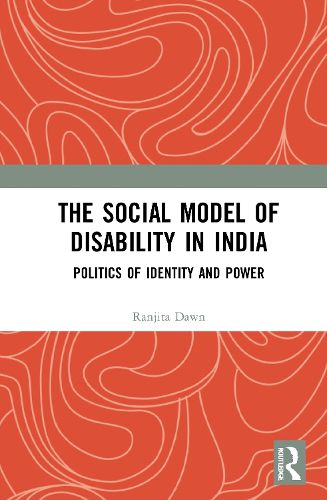Readings Newsletter
Become a Readings Member to make your shopping experience even easier.
Sign in or sign up for free!
You’re not far away from qualifying for FREE standard shipping within Australia
You’ve qualified for FREE standard shipping within Australia
The cart is loading…






This book presents various paradigms and debates on the diverse issues concerning disability in India from a sociological perspective. It studies disability in the context of its relationship with concepts such as culture/religion, media, literature, and gender to address the inherent failures in challenging prevalent stereotypical and oppressive ideologies. It traces the theological history of disability and studies the present-day universalized social notions of disablement. The volume challenges the predominant perception of disability being only a medical or biological concern and provides deeper insight into the impact of representation through an analysis of the discourse and criteria for 'normalcy' in films from the nineteenth and twentieth centuries. It analyzes the formation of perspectives through a study of representation of disability in print media, especially children's literature, comics, and graphic novels. The author also discusses the policies and provisions available in India for students with disabilities, especially women who have to also contend with gender inequality and gender-based discrimination.
The book will be of interest to scholars and researchers of disability studies, educational psychology, special education, sociology, gender studies, politics of education, and media ecology. It will also be useful for educationalists, NGOs, special educators, disability specialists, media and communication professionals, and counsellors.
$9.00 standard shipping within Australia
FREE standard shipping within Australia for orders over $100.00
Express & International shipping calculated at checkout
This book presents various paradigms and debates on the diverse issues concerning disability in India from a sociological perspective. It studies disability in the context of its relationship with concepts such as culture/religion, media, literature, and gender to address the inherent failures in challenging prevalent stereotypical and oppressive ideologies. It traces the theological history of disability and studies the present-day universalized social notions of disablement. The volume challenges the predominant perception of disability being only a medical or biological concern and provides deeper insight into the impact of representation through an analysis of the discourse and criteria for 'normalcy' in films from the nineteenth and twentieth centuries. It analyzes the formation of perspectives through a study of representation of disability in print media, especially children's literature, comics, and graphic novels. The author also discusses the policies and provisions available in India for students with disabilities, especially women who have to also contend with gender inequality and gender-based discrimination.
The book will be of interest to scholars and researchers of disability studies, educational psychology, special education, sociology, gender studies, politics of education, and media ecology. It will also be useful for educationalists, NGOs, special educators, disability specialists, media and communication professionals, and counsellors.